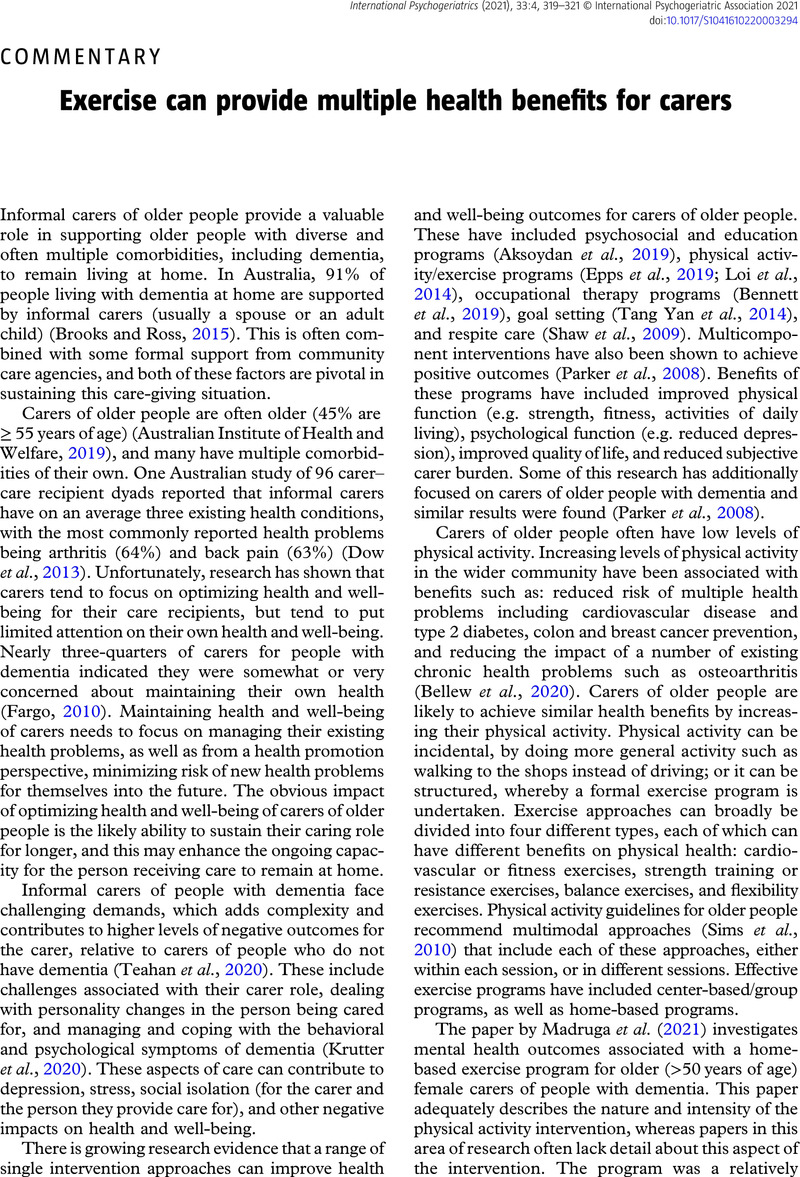Crossref Citations
This article has been cited by the following publications. This list is generated based on data provided by Crossref.
D’cruz, Migita
2023.
The complexity of inflammatory activity in caregivers: Commentary on “Associations of perceived stress, depressive symptoms, and caregiving with inflammation: A longitudinal study” by Elayoubi et al..
International Psychogeriatrics,
Vol. 35,
Issue. 2,
p.
63.
Borges-Machado, Flávia
Barros, Duarte
Silva, Paula
Marques, Pedro
Carvalho, Joana
and
Ribeiro, Oscar
2023.
Should Caregivers Also Be Included in Multicomponent Physical-Exercise-Based Interventions for People with a Neurocognitive Disorder? The Caregivers’ Perspective.
Geriatrics,
Vol. 8,
Issue. 5,
p.
86.



